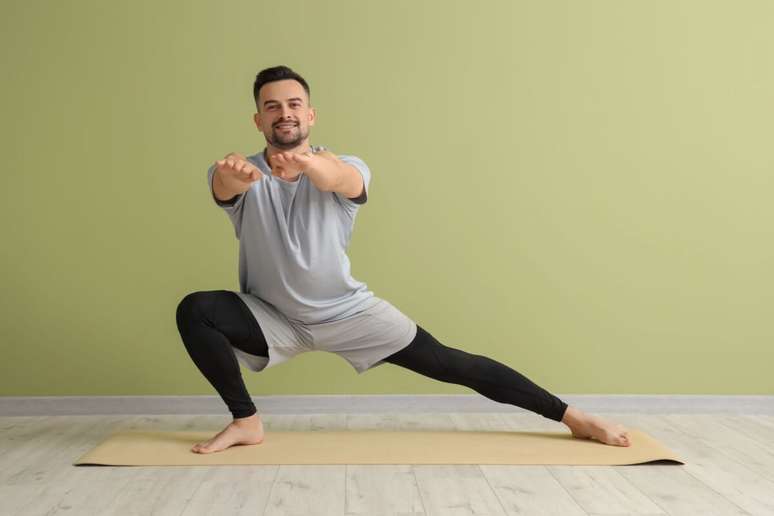With the help of doctors, we’ve brought you some daily habits that can help you fight stubborn acne
Acne is a common skin condition. While it can be easily treated in many cases, some people can develop a more severe and resistant form of the condition known as resistant acne.
html[data-range=”xlarge”] figure image img.img-dc6814debb72c573bd4727bbbcbd1f556wvb5639 { width: 774px; height: 516px; }HTML[data-range=”large”] figure image img.img-dc6814debb72c573bd4727bbbcbd1f556wvb5639 { width: 548px; height: 365px; }HTML[data-range=”small”] figure image img.img-dc6814debb72c573bd4727bbbcbd1f556wvb5639, html[data-range=”medium”] figure figure img.img-dc6814debb72c573bd4727bbbcbd1f556wvb5639 { width: 564px; height: 376px; }
It is characterized by deep and persistent inflammatory lesions which, in most cases, do not respond to conventional treatments. However, much can be done with the goal of treating inflammatory lesions and improving topical treatment.
Below, we’ve consulted with experts to learn what can be done to treat the problem. I wait!
1. Seek a dermatologist
One of the major concerns of patients seeking a dermatologist for acne treatment is the appearance of scars after treatment. And the best way to avoid that is to see a dermatologist as soon as possible.
«Only he can make an assessment and indicate the best treatment, which is prescribed on a case-by-case basis. In milder cases, for example, we can recommend products with active ingredients that work to reduce acne, such as benzoyl peroxide or niacinamide”explains the dermatologist Dr. Paola Pomerantzeffmember of the Brazilian Society of Dermatology
Again according to the doctor, for some patients, the dermatologist could indicate remedies to solve the problem. “In the most serious cases, we can prescribe oral or topical antibiotics or drugs that act directly on the function of the sebaceous gland, such as isotretinoin (the famous Roaccutane)”he says.
2. Use glycolic acid
Glycolic acid is an alpha hydroxy acid obtained from sugar cane. This active can be strategically used in soaps to control oily skin and acne.
“It has an exfoliating action on the skin, removing horny cells; it also stimulates collagen, reduces wrinkles, controls oiliness and whitens the skin. It is very suitable for the treatment of acne, oily skin and open pores, so it is highly recommended for teenagers in this condition”, explains Ludmila Bonelli, cosmiatrist, specialist in dermatocosmetics and scientific director of Be Belle.
3. Incorporate astringent toners into your acne routine
Astringent toning lotion is important to help remove excess oil from the skin. Formulas that offer moisturizing benefits are best.
4. Improve your diet
Excess skin oiliness can be food-related, which can be noticed within hours, or have a gradual increase in oiliness that can take months.
“The inflammatory profile in the body is exacerbated by excessive sugar consumption, which can trigger or aggravate inflammatory skin conditions such as dermatitis, acne and psoriasis”explains the nutritionist Dr. Marcella Garcezdirector and professor at the Brazilian Association of Nutrology (ABRAN).
According to the doctor, when consumed in excess, some foods “they unbalance the body, increasing the inflammatory profile – also of the skin – which generally results in greater stimulation of the sebaceous glands“. Therefore, one should avoid:
- Unhealthy fats found in ultra-processed foods;
- Modified vegetable fats;
- Saturated fats of animal origin;
- Soaked French fries;
- Pro-inflammatory foods such as sugars in general, excess sweets, white and refined flours;
- Allergenic ingredients such as artificial colors, flavors and preservatives.
5. Practice physical exercises
In addition to numerous benefits for the skin, such as collagen stimulation, increased oxygenation and cellular nutrition, physical activity also reduces levels of cortisol, the so-called stress hormone. “Modulating stress is key to preventing the release of pro-inflammatory messengers in the skin,” explains Dr. Paola Pomerantzeff.
7. Don’t squeeze acne marks
Finally, experts point out that in no case should pimples be squeezed. “Squeezing pimples is one of the main reasons for the appearance of scars”, concludes Dr. Paola Pomerantzeff.
By Pedro from Holding
Source: Terra
Ben Stock is a lifestyle journalist and author at Gossipify. He writes about topics such as health, wellness, travel, food and home decor. He provides practical advice and inspiration to improve well-being, keeps readers up to date with latest lifestyle news and trends, known for his engaging writing style, in-depth analysis and unique perspectives.









